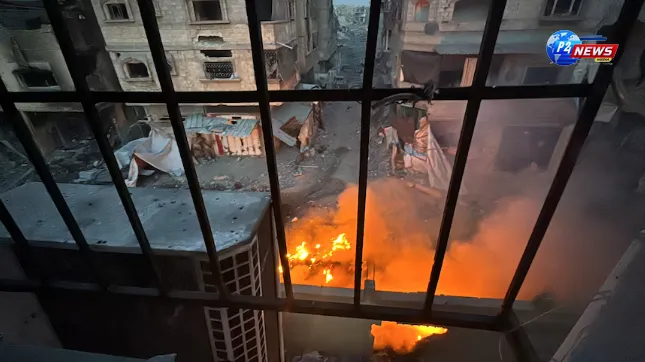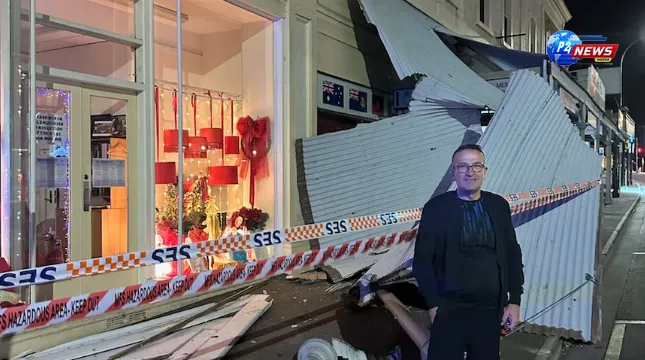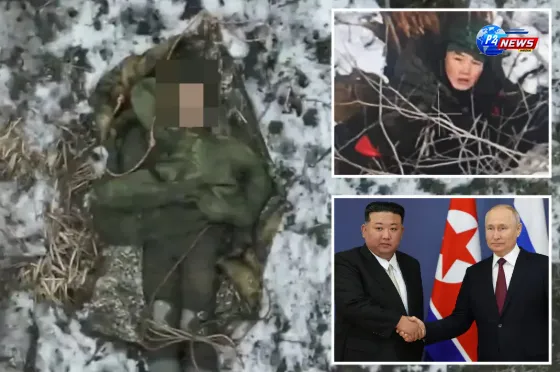Israeli forces instructed the evacuation of Kamal Adwan Hospital in northern Gaza on Friday. The hospital's director claimed on social media that IDF troops ignited fires in the operating theaters, raising concerns over the safety and treatment of patients.
Israel has mandated the evacuation of one of the remaining operational healthcare facilities in northern Gaza, asserting that the Kamal Adwan Hospital functions as a "Hamas terrorist stronghold." This hospital, located in Beit Lahiya, has come under consistent attack from the Israel Defense Forces (IDF) as military actions in northern Gaza have escalated significantly in recent months.
In a series of messages shared on social media, Dr. Hussam Abu Safiya, the hospital director, outlined the recent Israeli offensive targeting his facility, indicating that both staff and patients were being compelled to leave. He conveyed a disturbing account on Instagram, noting, "The occupation army is burning all the operating departments in the hospital while we are still there." He further stated, "The army evacuated the entire medical staff and the displaced individuals, apprehending several medical personnel in the process. There are numerous injuries among the medical staff."
Earlier in the day, Dr. Abu Safiya reported that around 50 individuals had lost their lives due to Israeli bombardments in the vicinity of the hospital, including five healthcare workers—a pediatrician, two paramedics, a lab technician, and a maintenance worker. He described the situation as "another dark day in the series of crimes against Kamal Adwan Hospital and its staff."
The IDF claimed that Hamas operatives were using the Kamal Adwan facility, stating, "It has once again become a key stronghold for terrorist organizations and continues to be utilized as a hideout for terrorist operatives." They asserted that despite repeated warnings to cease military activities within the hospital, Hamas continued to exploit it for military purposes. The IDF maintained that it aims to carry out targeted operations while minimizing harm to civilians, patients, and medical staff.
Additionally, the IDF accused Hamas of breaching international law by employing civilian infrastructure and the Gazan populace as shields for its militaristic endeavors. According to international humanitarian law, hospitals are afforded protection during conflicts, unless repurposed for non-medical activities. Israel has announced plans to transfer patients from Kamal Adwan to other healthcare facilities in Gaza, although the specific receiving hospitals have not been disclosed, raising doubts about their capacity to accommodate additional patients given their current burdens.
Reports indicate a troubling trend, as medics, journalists, and first responders are reportedly being killed while performing their duties in Gaza. According to international agencies, there are growing accusations that the Israeli military is deliberately targeting these individuals. The Hamas-affiliated Palestinian Health Ministry in Gaza characterized the situation at Kamal Adwan as a "suffocating siege," claiming that patients were forcibly moved to the Indonesian Hospital in northern Gaza.
The ministry highlighted the dire state of medical resources, noting that only three hospitals are operational in the region. It detailed that the Beit Hanoun hospital has been completely destroyed, and the Indonesian Hospital is rendered non-functional due to extensive damage to its infrastructure. The statement emphasized, "The only hospital that was partially functioning… is Kamal Adwan Hospital."
The ongoing Israeli siege of northern Gaza has reached its third month, with the IDF targeting locations it identifies as hubs for Hamas activity. Areas including Beit Lahiya, home to Kamal Adwan Hospital, and Jabalia have been transformed into landscapes of destruction following relentless airstrikes. More than 100,000 Palestinians have been displaced throughout this campaign.
Despite claims from the IDF that it is not attempting to starve the population or cut off northern Gaza from other regions, it faces accusations from humanitarian organizations, which argue that the conditions are too perilous for the delivery of vital food and medical supplies while hostilities are ongoing.
















Comments 0